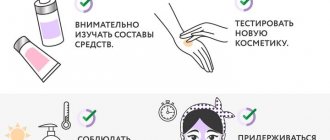by Doctor
Categories:
- Allergy treatment
30.06.2017
Throughout his life, a person suffers from a variety of ailments. More than 50% of all inhabitants of the planet experience allergic reactions. Some people suffer from them all the time, others only once in their lives. One way or another, any allergy requires immediate intervention from a specialist. The faster the symptoms are eliminated, the less stress will be caused to the body. Often, for allergies, droppers with a special medicinal substance are the most effective and fast-acting medicine.
Allergy options
Causes of an allergic reaction
An allergic reaction can result from various reasons:
- contact with dust;
- communication with animals;
- inhalation of plant pollen;
- prolonged exposure to the sun;
- consumption of certain foods;
- contact with chemicals.
If an allergy occurs, you can immediately recognize its first symptoms:
- skin rashes;
- itching;
- tearing, swelling of the eyes;
- constant sneezing;
- difficulty breathing, cough.
Allergies cannot be ignored. If left unchecked, it will lead to swelling and even anaphylactic shock. It is necessary to pay close attention to children's allergic reactions. After all, their small body is not yet fully formed. Therefore, children can hardly cope with allergy symptoms on their own.
How is the problem developing?
Development of an allergic reaction
There are cases when allergies disappear with age. Those. in childhood it is present for some substances, but in adulthood it does not manifest itself in any way, completely disappearing. The reason for this phenomenon is the immaturity of enzymatic systems. So, if substances that are not completely broken down (along with food) enter the body, an allergic reaction is triggered. It will gradually weaken and disappear completely in adulthood.
For adults, it is much more difficult to get rid of allergic reactions forever. Treatment of the problem must be comprehensive. First, you should go to see a doctor. Only a doctor will determine whether it is truly an allergy. After all, its symptoms can be confused with other diseases: colds, chicken pox, etc.
Allergies more often affect the female body. It happens that it is inherited. This is especially true for allergic rhinitis. With all such reactions, the patient feels:
- nasal congestion;
- sneezing;
- sore throat;
- excessive tearing;
- itching
When allergies are in advanced form, eczema may even appear or asthma may develop. Therefore, it must be treated on time and strictly under the supervision of a specialist.
Main news from Aktobe, Kazakhstan and the world
Why can medications prescribed for treatment cause harm? What are the dangers of intravenous infusions and antibiotics, how to be treated to stay healthy? Clinical pharmacologist and expert Albina Nigmedzyanova told D about this.
In the photo: Intravenous infusions can only be prescribed in intensive care, an expert believes. In other cases, they must be abandoned in order to save veins. Keeping a needle in them for a long time leads to irreversible changes. || Photo by Vladimir ZOBENKO
Why can medications prescribed for treatment cause harm? What are the dangers of intravenous infusions and antibiotics, how to be treated to stay healthy? Clinical pharmacologist and expert Albina Nigmedzyanova told D about this.
I wanted to get better and got sick
Albina Nigmedzyanova came to Aktobe and gave lectures to doctors. She talked about how to treat patients so as not to harm them.
– Nowadays people really like to heal themselves. They go to the pharmacy and ask to give them something for their head, temperature, and so on. But for pharmacists, medicine is a commodity, and they will give anything to make a profit. What will you get? We once received a man with kidney and liver damage. He had a common cold. He took paracetamol, Coldrex and Fervex. But the composition of the popular Coldrex, Fervex, Theraflu, Antigrippin, etc. paracetamol, ascorbic acid, pheniramine and other components are included in different combinations and doses. Their simultaneous use leads to an overdose, which is manifested by damage to the liver and kidneys.
An 80-year-old grandmother was brought to the hospital by ambulance. She took metoprolol for hypertension. The ophthalmologist prescribed her eye drops. She decided that 2 drops were not enough, because her eyes began to get dark, she began to instill 2 drops 3 times a day and lost consciousness. The drugs she was taking slowed down her heart. The grandmother’s blood pressure dropped, her heart rhythm became rare, and if it weren’t for the ambulance, the grandmother could have died.
Even when a patient takes medications strictly as prescribed, it happens that they make him worse or the medicine does not help. Why? Clinical pharmacologists understand this. They should be in every hospital (1 doctor per 250 beds) and in every clinic (1 doctor per 500 visits per day). It is the duty of the clinical pharmacologist to select medications individually, especially for seriously ill patients who have problems with the liver, kidneys, and heart - medications affect them differently.
Is TV smarter than a doctor?
Advertising is another problem. Does your child have pain and fever? Mom knows: you need to give ibuprofen, they say on TV, and everything will pass. And that's what mothers do. But in acute inflammation, non-steroidal anti-inflammatory drugs, by lowering the temperature, suppress the body's defenses. An acute disease becomes chronic. If a microbe enters the body, there are protective forces to cope with it. But we do what the TV recommends, and the microbe becomes inaccessible to either the body’s defenses or antibiotics. If children were not given antibiotics and non-steroidal drugs during childhood, there would be fewer chronically ill patients. There are countries where antibiotics are generally prohibited for children under 16 years of age.
Dangerous drip
As the regional health department informed “D”, 165.7 million tenge is spent annually on day hospitals in Aktobe alone. Hundreds of patients there receive intravenous infusions.
“Drips can only be used in intensive care,” says the expert. – With cholera, a person has diarrhea, he can neither drink nor eat, dehydration occurs, and he dies. They learned to treat the disease when they began to administer the necessary solutions intravenously. In this case, droppers are indicated. They should not be in the day hospital. Veins must be protected. Sometimes people themselves ask to give them, for example, glucose with ascorbic acid. Yes, drink tea with lemon and sugar, and your body will get the same thing, only without harm to health. Keeping a needle in a vein for several hours leads to irreversible changes in the veins. A situation may arise in life when you cannot do without infusion therapy, but the veins are already damaged and inaccessible.
Take your pills according to the rules
– What combination of the most commonly used drugs is dangerous?
– It is dangerous to use verapamil and anaprilin at the same time due to possible cardiac arrest. You cannot combine the antibiotic azithromycin or clarithromycin with the antiarrhythmic drug cordarone. It is impossible to list everything. It is best to take any medicine with water - it is chemically neutral. Many medications, when bound to food protein, are less well absorbed. There are drugs that can become toxic from grapefruit juice. St. John's wort can make the effect of the drug short-lived and ineffective. But even doctors do not always know about the dangers of drug therapy. This is not their fault, but a misfortune: this is never taught anywhere.
Dietary supplements: to drink or not to drink?
“No one has researched or tested dietary supplements, no one knows how they interact with medications, or even with themselves,” says Albina Nigmedzyanova. – We had a patient who had heart pain. His brother bought him expensive dietary supplements for his heart, hypertension, and arrhythmia. After a while, the patient began to hallucinate. The ambulance took him to the psychiatric hospital. An employee of the Department of Clinical Pharmacology was on duty there. She asked to bring packages of dietary supplements that the man drank. It turned out that they all contained the same component, which has a hallucinogenic effect. Three dietary supplements gave a toxic dose.
– How to stay healthy if medications are so harmful?
– Only 5% of health depends on medications, the rest depends on a healthy lifestyle. We now have preservatives, stabilizers, and flavorings in our products. In Kazan they sell cottage cheese, which not a single village cat eats. But people eat. To maintain health, you need an ecologically clean diet, adequate sleep, exercise, and the ability to withstand stress.
– Medical institutions spend billions on purchasing medicines. The Drug Information Center analyzed them: more than half of the drugs do not have an evidence base. Huge amounts of money are spent on day hospitals, where useless and often harmful solutions flow like a river. Therefore, we need clinical pharmacologists; they could calculate the need for medications that should be given free of charge, and this would cost not 2 billion tenge, but much less.
– Tatyana Ostretsova, Director of the FA Association of Family Doctors of Kazakhstan
When are IVs prescribed?
Cases in which IVs are placed
After examining a patient with allergies, the doctor always prescribes therapy. Often it includes droppers. They are prescribed in the following cases:
- Acute condition, complicated allergic reaction. For example, anaphylactic shock, which occurs in response to medications, insect bites, certain foods or nutritional supplements.
- Difficulty breathing (spasms that constantly accompany the patient, shortness of breath, asthmatic symptoms).
- Acute dermatitis. Otherwise it is commonly called Leyell's syndrome. The entire skin becomes covered with large blisters containing fluid, which burst over time. In their place, weeping, long-lasting affected areas remain. Most often, this reaction is observed when taking medications.
- Stevens-Jones syndrome is another variant of allergic dermatitis that develops due to intoxication of the body. The problem arises as a response to drug therapy. A provoking factor in the development of such a reaction can be an infection or hypothermia.
- Quincke's edema. It is because of this that breathing becomes difficult. Even the simplest foods can cause this reaction. This could be milk, fruits, and nuts.
Indications for installing IVs
Before prescribing a dropper for urticaria to a patient, the doctor must determine the presence of specific indications, among which it is worth remembering:
- The severity of the patient's condition. Allergic reactions can be caused by the use of certain medications or insect bites, which can lead to very serious complications.
- Frequent attacks of spasms in the bronchi and upper respiratory tract.
- Development of severe edema. Swelling of the skin and mucous membranes not only causes discomfort, but can also be life-threatening if the swelling has developed in the patient’s respiratory organs.
- Lyell's syndrome. This syndrome is the formation of various ulcers and blisters on the skin, which deform it and cause external bleeding.
- Steven-Johnson syndrome. It can be observed after taking certain medications, which can sometimes cause various damage to the skin.
- Quincke's edema. It is swelling of the tongue and larynx, which results in severe breathing problems for the patient.
To diagnose these indications, the doctor may use a wide range of examination techniques, which range from visual examination to magnetic resonance imaging.
- The severity of the patient's condition. Allergic reactions can be caused by the use of certain medications or insect bites, which can lead to very serious complications.
- Frequent attacks of spasms in the bronchi and upper respiratory tract.
- Development of severe edema. Swelling of the skin and mucous membranes not only causes discomfort, but can also be life-threatening if the swelling has developed in the patient’s respiratory organs.
- Lyell's syndrome. This syndrome is the formation of various ulcers and blisters on the skin, which deform it and cause external bleeding.
- Steven-Johnson syndrome. It can be observed after taking certain medications, which can sometimes cause various damage to the skin.
- Quincke's edema. It is swelling of the tongue and larynx, which results in severe breathing problems for the patient.
In addition, allergy vaccination is a preventive method aimed at preventing an acute reaction to bee or wasp stings. Vaccination is also recommended for use against allergies to pet hair. It also helps protect the patient from the possible development of asthma or a form of it such as allergic asthma.
Allergy vaccination.
Naturally, there are contraindications to the use of vaccination.
Thus, treatment of acute asthma with subcutaneous injections of the allergen is not recommended.
Before such treatment is prescribed, allergies are combated using conventional methods. That is, medications are used, the action of which is aimed at suppressing and completely eliminating symptoms in the form of redness, rash, and so on. These include antihistamines, creams, ointments and more. And if the conservative treatment method does not produce positive results, the doctor may prescribe vaccination.
Diagnostic measures, the results of which determine whether anti-allergy injections are possible, include allergy tests.
In addition, the performance of the lungs is monitored.
Allergy medications for IVs
Only a specialist can prescribe the drug
There are many drugs that are used to eliminate allergies. Some of them need to be administered intravenously using droppers. Only a specialist can prescribe this or that drug. And this largely depends on the patient’s health condition.
Treatment for seasonal allergies can be started early. To do this, the doctor must first identify the allergens that affect a person. Only then are these provoking substances administered in small quantities to the patient in the form of subcutaneous injections. The body fights them, developing strong immunity. This should be repeated many times over several months. Such therapy should be carried out in the winter so that you are ready for spring.
The procedure is carried out in special clinics. The injections should be given by a professional allergist. True, there will be no immediate effect. Immunity will develop over a long period of time. You need to be very careful with experiments. There are cases when getting rid of an allergy to one substance resulted in a reaction to other allergens.
If the allergy takes you by surprise and your condition worsens sharply, you should immediately call an ambulance. This cannot be done without the help of medical workers. Otherwise, the situation can lead to disastrous consequences. As an emergency treatment for anaphylactic shock, an injection of Adrenaline helps. In an hour, the doctor will give 3 injections every 20 minutes. Thereby:
- The patient's muscles will relax;
- The respiratory process will return to normal.
As first aid for rapidly developing allergies, use:
- Solutions for inhalation based on saline and colloidal preparations;
- Drops of steroid hormones that can suppress immune cells. This reduces the productivity of antibodies in the blood.
Droppers with the following medications help return all processes and functions of the body to a normal state during allergic reactions:
- Glucocorticoids. They are hormones. They are produced in the body by the adrenal cortex. They are able to overcome shock. An aqueous solution for droppers is made from glucocorticoids. On the first day it should be as concentrated as possible. Further, the amount of administered hormones is gradually reduced.
- An allergy dropper based on a glucose solution is a necessary measure for problems with blood pressure. This drug can normalize the functioning of the heart, kidneys and liver. But it is these organs that cleanse the body of all harmful substances.
- Medicines that can stop asthmatic spasms. They should not be used by people with low blood pressure.
- Drugs that block the production of histamine in the body. They will help neutralize toxins.
- Adrenaline helps prevent allergens from being absorbed directly into the patient's blood. Additionally, this drug normalizes blood pressure.
Allergy shots
Allergies always take you by surprise.
A quick and effective way to eliminate its symptoms is allergy injections. These are injectable drugs that differ in composition and principle of action, but have a common goal - weakening the body's immune response to irritants.
Types of vaccines
Hormonal allergy injections contain glucocorticosteroids - synthesized components, analogues of adrenal hormones.
Treatment with such drugs cannot be long-term, since they cause many side effects. The greatest harm is caused to the endocrine and gastrointestinal systems.
A hormonal vaccine is required if the patient requires one-time intensive care in an urgent situation.
An example of hormonal antiallergic injections is Dexamethasone, but in fact there are many such vaccines, and Dexamethasone is just one drug among many.
Injections containing hormones are necessary in the following circumstances:
- swelling of the larynx and upper respiratory tract;
- patient's state of shock;
- a sharp decrease in blood pressure.
Injections intended for allergies, which do not include hormones, are essentially liquid analogues of tablet medications. For example, if it is not possible to take the drug orally in tablet form, non-hormonal vaccines will come to the rescue.
They do not have such a pronounced effect as Dexamethasone or an Adrenaline injection, and, therefore, do not have the wide list of side effects.
In addition, they will act much faster than anti-allergy tablets, since during their work they will not have to go through the absorption stage through the intestinal tract - the drug instantly enters the bloodstream.
Non-hormonal injections for allergies are divided into three groups, which for convenience we will consider in the following table.
Names of the group and the drugs themselvesPrinciple of their action
| Antiallergic injection drugs, for example: Diphenhydramine, Tavegil, Suprastin. | It is given as an emergency aid to persons in whom signs of hypersensitivity of the body develop quickly, and a quick effect of neutralizing histamine is needed, for example, in case of a sudden hypersensitivity reaction to the drug Milgamma. Most often, an allergy shot in this case helps to soften the severe symptoms of the disease into symptoms of moderate and mild severity, which in the future will allow you to refuse the administration of vaccines and continue treatment with oral antihistamines. |
| Desensitizing drugs, for example: potassium chloride, calcium gluconate. | These medications help reduce the body's hyperreaction to irritants, preventing the release of allergy mediators. Most often, these drugs are prescribed for skin manifestations of allergies. |
| Detoxification drugs, for example: saline solution, glucose solution, diuretics. | Intravenous administration of these drugs helps to quickly eliminate the symptoms of allergic diseases, remove toxic substances from the body, which are formed in large quantities against the background of shock or inflammation (for example, with drug intolerance to the same drug Milgamma). Drugs |
Next, consider a list of effective and popular antiallergy vaccines.
PREDNISOONE. This is a hormonal allergy shot. Its advantage is that the drug acts quickly, and a short course of treatment does not cause side effects.
Prednisolone, as an allergy shot, is preferably prescribed as an emergency aid to patients suffering from bronchial asthma, provided that inhaled measures with glucocorticosteroids did not have the desired effect, that is, they did not help stop an asthmatic attack. A short course of treatment with Prednisolone, recommended by the attending physician, will help quickly normalize impaired breathing, eliminate allergic symptoms, and return to previous treatment.
Prednisolone treatment can also be prescribed to persons suffering from allergic disorders such as eczema, atopic dermatitis, skin reactions on the face and scalp.
Prednisolone injection is almost never prescribed in childhood, since this drug can cause a child to lag in physical development, in particular, in growth. Less commonly, the drug is prescribed for a disease such as hay fever.
Despite the fact that allergies sometimes require emergency care and hormonal injections, in this case, are most preferable, Prednisolone injections cannot be prescribed for pathologies such as:
- stomach ulcer;
- systemic mycosis;
- polio;
- myopathic disorders.
Prednisolone is administered intravenously or intramuscularly. The course of treatment and dosage of the drug should be prescribed by a doctor, since the patient’s health depends on these important factors.
SUPRASTIN. The table shows the indications for the use of Suprastin injections, as well as contraindications:
Indications for useContraindications
|
|
RUZAM. An effective antiallergic drug. Indications and contraindications for use are indicated in the table:
Indications for useContraindications
|
|
After the injection, various side effects may develop, as with many other drugs.
This may be weakness, more pronounced skin rashes (if we are talking about allergies on the skin, for example, as a result of a drug allergy to the drug Milgamma), increased cough (with chronic bronchitis and asthma), and a slight increase in body temperature.
It is quite difficult to predict what the adverse reaction will be or whether there will be several of them, however, such phenomena are reversible and disappear quite quickly without any intervention, for this reason it is not advisable to avoid their use.
DIPROSPAN. Allergy injection Diprospan, like Dexamethasone, is a hormonal antiallergic drug. It is prescribed as an urgent emergency treatment for the development of conditions such as Quincke's edema and anaphylactic shock.
Also, this drug is prescribed if non-hormonal antihistamines (both tablets and injections) fail to have the desired effect. This is usually observed with hay fever, contact dermatitis and other pathologies.
Dispropane is contraindicated for use in:
- systemic mycosis;
- kidney problems;
- high blood pressure;
- intolerance to glucocorticosteroids;
- pregnancy, lactation;
- diseases of the digestive system.
Undesirable effects are uncommon; they usually manifest themselves in symptoms of gastrointestinal disorders.
With prolonged treatment with the drug or its dosage is exceeded, psychomotor reactions such as sleep disorders, anxiety, depression, and loss of appetite are possible.
It is forbidden to drink alcohol during treatment with Dispropane, since ethyl alcohol increases intolerance and side effects of this drug.
What is a hot shot?
Hot shot - Calcium Gluconate or Calcium Chloride causes a feeling of heat due to the increased salt content, which promotes intense dilation of blood vessels. Calcium gluconate can only be administered intravenously, since when the drug is administered intramuscularly, necrotic changes may form on the buttock as soon as the drug enters subcutaneously.
Both Calcium Chloride and Calcium Gluconate increase the concentration of calcium in the blood, resulting in the latter reducing the clinical signs of an allergic reaction.
Advantages and disadvantages of allergy shots
All allergy medications are classified into three groups: first, second and third (new) generation. Antiallergic drugs of the first two groups cause various side effects. New generation drugs work faster and more efficiently. Let’s look at what this classification looks like using examples of individual drugs in the table.
GenerationDrugFeatures of action
| I | Diphenhydramine, Suprastin, Diazolin | Short-term effect, sedative effect, disruption of the cardiovascular system. |
| II | Loratadine, Astemazine, Ebastine | If the dosage is observed, there will be no sedative effect or negative effect on the heart and blood vessels. You can receive long-term treatment, the result of therapy is long-lasting - at least 24 hours. |
| III | Ruzam, Cetirizine | Previous generation active metabolites |
What are the new generation of allergy shots? First of all, these are specific medications that eliminate the allergic status, improve the body’s immune response, and promote the natural synthesis of components that enter into a targeted fight with the clinical manifestations of the disease.
Thus, an allergy vaccine is one of the modern therapeutic methods that can improve the condition and well-being of a person suffering from this pathology by at least 90%.
These drugs significantly reduce the susceptibility of the allergic person’s body to the poisons of various insects, pollen, dust, medications and other irritants.
Of course, it is impossible to hide from allergens, but it is quite possible to reduce the clinical manifestations of this disease, and, therefore, normalize overall well-being. This is the benefit of injections for allergy symptoms.
Another obvious disadvantage of antiallergy vaccines is the unpredictable response of the immune system to their administration, the negative impact on health, and the development of undesirable effects.
Therefore, before starting treatment with allergy injections, it is important to undergo an appropriate diagnostic examination, determine the names of specific irritants and carry out any therapeutic measures only under the supervision of the attending physician.
Long acting allergy shots
Currently, long-acting injections, or the ASIT method - allergen-specific immunotherapy, are becoming popular. The essence of this method is to slowly accustom the allergic person’s body to a specific irritant. It will take quite a long time to completely get rid of this disease, but the chances are good.
This allergy shot will help you forget about the unpleasant symptoms of an allergic disease for a year. It is worth noting that the duration of the effect is influenced by some factors, in particular the individual characteristics of the body, so the result from the course of ASIT treatment may last only a few months.
Indications for ASIT Pluses of ASIT
|
|
It is recommended to start allergen-specific therapy as early as possible; at the initial stage of the disease, the chances of recovery are much greater.
The ASIT method has proven its effectiveness in 75% of cases. Treatment is carried out in two versions - accelerated therapy and classical. With an accelerated course of treatment, allergy injections are given up to 3 times a day for several weeks (maximum 21 days). With classical treatment, vaccination will be longer, over several months and even years.
Reviews about injection treatment
TATYANA, 28 years old. 10 injections of Ruzam, prescribed by an allergist, helped to survive the dangerous days and months in terms of allergies - the period of flowering of plants. Previously, spring and summer turned into a real test for me, I hope that I will be able to consolidate the results and get maximum help from this drug.
ANDREY, 44 years old. In general, I am sure that every person is familiar with allergies and Suprastin. This drug is considered slightly outdated, but despite this, no new generation products can give me the same effect as good old Suprastin.
Suprastin tablets can be taken according to the situation, and injections of this drug are needed in an emergency. I can give an example from life: for neck pain, the doctor recommended the drug Milgamma, after the first administration of which breathing problems, rashes and swelling of the face and neck appeared.
2 tablets of an antihistamine did not help, and Suprastin came to the rescue in the form of an injection, which was in the medicine cabinet. After only a quarter of an hour, my health improved.
To summarize, I would like to emphasize that allergy injections are drugs that are considered the best antiallergic drugs today.
The speed with which they act on the body will not only help in a short time to make the patient feel better, but also save lives! However, it is important to remember that you cannot prescribe these drugs yourself, even if they have good reviews, as this can be dangerous. What injections are needed and how the treatment will be carried out is decided by the attending physician.
Source: https://AllergiyaNet.ru/lekarstva/ukoly-ot-allergii.html
Effect of IVs
Efficiency of using droppers
There is another method of dealing with allergies. It is called universal plasmapheresis. This procedure allows you to cleanse the patient’s blood of harmful substances and allergens. To do this, blood is taken from a person’s vein. It passes through a filter and then returns back to the body with the help of a dropper. For a visible effect, at least 5 sessions will be required. Each of them lasts several hours in an outpatient setting. This technique is very effective even for urticaria. The result will be visible instantly. Of course, all symptoms will not disappear immediately, but the condition will gradually return to normal.
Any medicine has its contraindications. Therefore, only an allergist can prescribe them. And all procedures that are associated with the elimination of allergic reactions should not be carried out independently, but strictly in a hospital setting.
Allergies to a wide variety of allergen substances are a very common disease today. If there are minor symptoms, it is possible to get rid of allergies by using modern antihistamines. However, in more severe cases, allergy IVs are used for successful treatment.

Allergens that cause hives
The bodies of different people react negatively to a variety of substances. Therefore, there are several drugs that weaken or prevent their manifestations.
In particular, drugs can be aimed at combating reactions to:
- plant flowering products;
- substances released by bees and wasps as a result of stings;
- fruits and nuts;
- animal hair, etc.
Today, the most effective form of vaccine is the one based on the principle of desensitization.
It, in turn, involves the gradual introduction into the body of more and more of a special drug that contains a specific antigen. Most often, this leads to a weakening of negative reactions to allergens, and in some cases, to the complete elimination of negative manifestations.
There is also another type of vaccine. It involves the introduction of monoclonal antibodies into the body. The peculiarity of vaccinations against allergies is that they have to be used frequently, and most importantly, while completing the course, a person has to frequently visit the doctor.
Vaccine development is still underway. There are still no vaccines that can prevent allergies as well as other problems such as influenza or pneumococcal infections.
For example, at the end of 2017 and the beginning of 2020, the Austrian company MedUni Vienna conducted the second stage of testing a drug that prevents negative reactions to pollen. This remedy showed a 25% reduction in symptoms, which is great progress.
The vaccine from MedUni Vienna is called the first effective vaccination against pollen allergies.
All drugs are different. Therefore, they may have different contraindications.
However, almost all allergy shots cannot be given if:
- exacerbation of allergies and/or at least one chronic disease (including mental illness);
- the presence of tuberculosis, problems with the cardiovascular system;
- pregnancy or breastfeeding.
Classical
It involves regular injections of the allergen to which hypersensitivity has been identified.
Injections are given daily or every other day, then at intervals of days. The treatment regimen is selected individually, depending on the allergens and characteristics of the patient. For example, with a diagnosis of “spring hay fever,” therapy is carried out in the autumn-winter period, before the flowering of allergen plants (related allergens are combined in mixtures, for example, birch, alder and hazel).
There are also abbreviated allergy vaccination regimens - they are carried out in a hospital setting.
ASIT according to the classical scheme is done on an outpatient basis, in specialized medical offices, but the doctor monitors the patient’s condition before each injection and for minutes after it in order to avoid complications.
Accelerated
The ASIT course lasts about two weeks. After discharge from the hospital, a maintenance dose is prescribed - the maximum, well tolerated.
It is believed that a shortened course is less effective than regular injections, but many people find it easier to go to the hospital for a couple of weeks than to go to the doctors every day.
Droppers with Glucose are prescribed in exceptional cases if a person experiences: hypoglycemia, heart rhythm disturbances, swelling of internal organs, especially the respiratory system, bleeding diathesis, collapse - a sharp drop in blood pressure.
This medication is also safe and not prohibited for pregnant women and nursing mothers. In fact, Glucose is a valuable source of nutrition for the body, increasing its energy reserves and being easily digestible.
However, people who receive allergy shots are intentionally exposed to substances that cause an allergy reaction. Purified analogues of these substances are administered directly into the body in small quantities and sometimes in a form slightly different from the natural one.
Unlike random, uncontrolled exposure to allergy-provoking substances, allergy shots (or immunotherapy, in medical parlance) have been shown in some scientific studies to reduce allergic symptoms.
https://www.youtube.com/watch?v=1at6Z08HvY4
Allergen irritants include:
- food and medicine: sweets, baked goods, honey, some fruits, seafood, antibiotics;
- insect bites;
- reaction to the external environment - sun, frost, rain;
- a symptom of another infection (rubella).
Droppers with Glucose are prescribed in exceptional cases if a person experiences: hypoglycemia, heart rhythm disturbances, swelling of internal organs, especially the respiratory system, bleeding diathesis, collapse - a sharp drop in blood pressure.
This medication is also safe and not prohibited for pregnant women and nursing mothers. In fact, Glucose is a valuable source of nutrition for the body, increasing its energy reserves and being easily digestible.
In what cases are droppers prescribed for allergies?
As noted above, with a relatively mild course of the disease, treatment with droppers is not prescribed. Because positive dynamics can be achieved using simpler methods of therapy. Consequently, an allergy drip is used in fairly severe forms of the disease, when taking antihistamines and anti-inflammatory drugs is no longer effective. As a rule, intravenous administration of drugs is prescribed in the following cases:
- In case of a fairly severe allergic condition (Quincke's edema or anaphylactic shock). In such cases, a person requires urgent assistance from medical professionals.
- If there is significant swelling of soft tissues and mucous membranes in different parts of the human body;
- In the presence of acute dermatitis, urticaria and other skin allergic manifestations. The most dangerous among them is Lyell's dermatitis, which manifests itself in the appearance of large blisters on the skin, which burst and turn into weeping wounds that do not heal for a long time;
- In the presence of a very acute form of allergic bronchial asthma.
Thus, droppers for allergies are used as emergency measures, which are designed to help in especially severe cases.
Droppers for allergy relief –
Hello, dear readers!
Allergy is an extremely unpleasant disorder that can be triggered by various irritant substances. It’s good if its symptoms can be eliminated with antihistamine tablets in a couple of days, but this does not always happen. In some cases, the disease worsens and requires more serious therapy. After reading the article, you will learn why an allergy drip is prescribed, what drugs are administered intravenously and why.
What is the reason for prescribing such a procedure?
First, let's figure out in what cases a patient is given IVs. In the standard “mild” course of the disease, such treatment is not prescribed because it is unnecessary.
But if the allergy worsens and develops into a “severe” form, then ordinary antihistamines will no longer help. Intravenous administration of drugs may be required in the following cases:
- In severe conditions. For example, in an anaphylactic state of shock or swelling of the Quincke type, when a person needs emergency help. Severe conditions can occur with any hypersensitivity, for example, when reacting to pollen, medicinal substances, and household chemicals.
- For intense bronchospasms and severe bronchial asthma.
- For acute dermatitis, urticaria or similar skin defects. The most dangerous is considered to be Lyell's dermatitis, in which huge blisters appear on the epidermis, burst and turn into wet wounds that do not heal for a long time. Agree, this is not an ordinary hives that you can tolerate.
- For swelling of soft tissues, such as skin. In addition to the skin, mucous membranes in various parts of the body may swell.
Based on the above, it can be understood that IVs are emergency measures that may only be required in severe cases. After them, the allergy sufferer’s condition improves significantly.
It may consist of: corticosteroids, anti-asthmatic drugs, decongestants, antihistamines, adrenaline (administered in exceptional cases if something threatens the patient’s life).
Another advantage of this treatment is that it can be done at home. Do you want to know which drugs are given intravenously during an attack and why? The most effective and popular ones are listed below.
Sodium chloride
Sodium chloride is injected into people with hypersensitivity for:
- neutralizing the influence of toxic substances;
- removal of toxins from internal organs;
- improving peristalsis.
The main effect of this medication is antitoxic. Therefore, it is advisable to inject it in case of food and drug intolerances in order to remove the remnants of the irritant from the body.
After droppers using sodium chloride, the following improvements are observed: the skin is cleared of rashes; intestinal function improves; hypersensitivity symptoms stop progressing.
Corticosteroid Dexamethasone
Antiallergic infusions with Dexamethasone are prescribed in severe cases when there is a risk of complications. Main properties of corticosteroids:
- anti-inflammatory;
- antihistamine;
- immunosuppressive;
- increased sensitivity of beta-adrenergic receptors to endrogen-type catecholamines.
Dexamethasone is a hormonal drug with a complex composition that acts quickly and radically. Therefore, such medications should not be taken for a mild attack, especially for children.
The main advantage of Dexamethasone is its safety. The drug has been tested by a huge number of people and almost no one has had any side effects.
Intravenous administration of saline solution
Why might a hypersensitive person need a saline drip? It's simple: in order to eliminate intoxication.
This symptom develops more often in adults than in young people. Saline enhances the effect of some medications. It is sometimes prescribed to allergy sufferers solely because of this ability.
Any medications can be injected into the saline solution, for example, antihistamines, anti-inflammatory, cleansing the body. Thus, its main advantage is versatility.
With Magnesia
Magnesia droppers are one of the few methods of treating hypersensitivity approved during pregnancy. The spectrum of action of the above medicine is very wide:
- dilates blood vessels;
- produces an antispasmodic (pain-relieving) effect;
- prevents seizures;
- normalizes blood pressure and heart rate;
- calms;
- promotes the elimination of toxins, has a diuretic effect;
- is a mild laxative.
Based on the above, it should be noted that Magnesia is advisable to use not only for allergies, but also for eating disorders and infectious intestinal diseases.
Why are some people prescribed intravenous administration of the drug? Because in this way the speed of its action becomes maximum. The main advantage of Magnesia is safety.
Glucose against hypersensitivity
Droppers with Glucose are prescribed in exceptional cases if a person experiences: hypoglycemia, heart rhythm disturbances, swelling of internal organs, especially the respiratory system, bleeding diathesis, collapse - a sharp drop in blood pressure.
This medication is also safe and not prohibited for pregnant women and nursing mothers. In fact, Glucose is a valuable source of nutrition for the body, increasing its energy reserves and being easily digestible.
Now you know the names of the most popular antiallergic droppers. Share what you read with your friends on social networks, and also subscribe to updates on this site if you enjoyed being here. See you again!
Anna Derbeneva (dermatologist)
29-07-2016
Sources used: kozhatela.ru
Composition of droppers for allergic reactions
With IVs, in the event of allergic reactions, depending on the condition, a very different composition of drugs can be used, which are selected in accordance with the symptoms. What do you use for allergies?
Droppers with calcium chloride
Droppers with calcium chloride are used to reduce swelling and reduce the content of toxic substances in the blood during antiallergenic therapy. Thanks to the use of calcium, allergic reactions are reduced. Droppers for allergies, urticaria, eczema, hay fever, etc. include calcium chloride. There are several contraindications to the use of calcium chloride droppers, including calcium hypervitaminosis, a tendency to thrombosis, too high a level of blood clotting, and atherosclerosis. Treatment usually continues for 10 days.
Droppers with hormonal drugs
Droppers with solutions of hormonal drugs (glucocorticoids) are used to reduce the inflammatory process, stimulate the immune forces of the human body, and help stabilize the general condition. In this case, in the first days of therapy, fairly large doses of drugs are used, followed by a reduction in dosage.
Droppers with aminophylline
Aminophylline solution can be administered if it is necessary to quickly relieve bronchospasm in patients with bronchial asthma. The use of a dropper with this drug helps to quickly provide assistance in the event of an uncontrolled attack, which cannot be relieved with the help of conventional drugs. It is necessary to take into account that the use of this method has a large number of different contraindications. Therefore, it should be used with caution and only in cases where it is really necessary.
Droppers with antihistamines
Also, in order to achieve a more immediate effect, antihistamines can be used in droppers. For example, Suprastin, Pipolfen, Diprazine or some other types of modern medications against allergic reactions.
Droppers with glucose solution
Glucose solution can be used as an additional aid in the treatment of allergies. Thanks to its use, blood flow improves and the functioning of the kidneys and liver is stabilized, which is very important for detoxifying the body of an allergy patient. In addition, a glucose solution administered intravenously can increase blood pressure and improve the functioning of the heart muscle.
Adrenaline drips
Another drug that is used in droppers for antiallergic therapy is adrenaline. However, it is used quite rarely. The main purpose of using adrenaline is to prevent the absorption into the blood of drugs that cause a very strong allergic reaction. It also helps normalize blood pressure.
Magnesium droppers
Magnesium droppers can be used during pregnancy and this is one of the important advantages. Since almost all antihistamines cannot be used during pregnancy, the use of a magnesium dropper can be almost the only safe way to reduce an allergic reaction during pregnancy. Thanks to the use of this drug, vasodilation occurs, prevents seizures, calms, helps in removing toxic substances from the body, and has a diuretic effect.
Glucose against hypersensitivity
Droppers with Glucose are prescribed in exceptional cases if a person experiences: hypoglycemia, heart rhythm disturbances, swelling of internal organs, especially the respiratory system, bleeding diathesis, collapse - a sharp drop in blood pressure.
This medication is also safe and not prohibited for pregnant women and nursing mothers. In fact, Glucose is a valuable source of nutrition for the body, increasing its energy reserves and being easily digestible.
Now you know the names of the most popular antiallergic droppers. Share what you read with your friends on social networks, and also subscribe to updates on this site if you enjoyed being here. See you again!
Author of the article: Anna Derbeneva (dermatologist)
Publication date:07/29/2016
Condylomas Papillomas Warts Eczema Psoriasis Lichen Pimples Dermatitis Wrinkles Urticaria Chickenpox Scabies Allergy Skin fungus Skin cancer Burns Other diseases Vitiligo Herpes Cellulite Pediculosis Dandruff
Benefits of treating allergic reactions with IV drips
Firstly, when the solution is administered intravenously, the speed of action of the drug increases significantly; secondly, treatment can be carried out both in a hospital and at home, if you use the services of a professional nurse; thirdly, it allows you to stop severe allergic attacks. Naturally, the need to use droppers, their composition and dosage is determined by an allergist, and a nurse sets up the droppers.
Interesting and useful video on the topic of the article:
Hello, my name is Olga, I was in the hospital and had a laparoscopy operation. An ectopic pregnancy, after which they started giving IVs. Injections, antibiotics for about 5 days and I started having a reaction. Sneezing, watery eyes, red eyes. I took Erius and everything seemed to go away. Discharged. At home everything was fine for a week, I ate everything, nothing showed up, and then I started to itch, but there were no rashes, at the clinic I took a blood test for eosinophils 2, went to an allergist, she questioned me about urticaria. And she prescribed integnin and rupafin tablets. But I don’t take rupafin yet, I’m afraid that there may be an allergy. Now my eyes are a little red in the evening and swollen in the morning, and there is slight nasal congestion with a runny nose, tell me, can everything be done without pills? Thank you!
It is very common to meet people who have an allergic reaction after injection of any medicine. An allergic reaction after an injection occurs in people who are hypersensitive to a certain medicine.
If a person is prone to allergies, he may experience certain reactions, such as a rash on the body, redness of the eyes, swelling of the lips, eyelids, cough, shortness of breath and others. The occurrence of allergic manifestations depends on various factors, on the patient’s condition, on the dose of the injection, on the injection site and on the individual characteristics of the body.
Droppers to improve the body's condition: drugs
With glucose content
Packaged in sealed plastic bags or bottles, 5% glucose solution is used:
- bleeding and increased bleeding;
- a sharp decrease in blood sugar;
- diarrhea, vomiting;
- infectious diseases;
- dehydration and exhaustion.
Cautions:
- Due to the risk of hyperglycemia, the solution is highly not recommended for patients who have had a stroke, or should be administered with great caution;
- Patients with heart failure, water intoxication, kidney edema and fluid in the lungs need to receive a large number of infusions under the supervision of a specialist;
- After traumatic brain injury, infusions are carried out on the first day, carefully monitoring plasma glucose levels;
- Infants, small children or premature children should also be treated with the solution under medical supervision to avoid hypoglycemia.
Dosage
Taken into account from these circumstances:
- age;
- weight;
- general health;
- clinical picture.
Application
- The most important thing is to use sterile, sealed equipment to prevent air from entering.
- It is not recommended to use plastic bags, which can be filled with air, which leads to air embolism - blockage of blood vessels with air bubbles.
- Additional medications may be added to the solution at any time during the infusion. In this case, the prepared solution is used immediately, since it cannot be stored.
To restore water-salt balance
Sodium chloride or saline solution is used, since chlorine with potassium and sodium maintains water balance, an acid-base environment, which is necessary for full life.
A lack of these components can lead to:
- blood thickening,
- muscle spasms and convulsions,
- disruption of the cardiovascular system.
Cautions and contraindications
- In case of dysfunction of blood circulation, since it is fraught with the development of cerebral or pulmonary edema;
- Renal, left ventricular and chronic heart failure;
- Elevated sodium levels. It is also prohibited to administer the solution subcutaneously to avoid tissue death (necrosis). With frequent use, acidosis, overhydration and hypokalemia may develop.
Causes of allergies
An allergic reaction can occur from any drug, but there are some drugs that people are most likely to be allergic to, these drugs are:
- Antibacterial drugs.
- Non-steroidal anti-inflammatory drugs.
- Medicines that cause anesthesia.
- Painkillers.
- Medicines against tuberculosis.
- Vaccines that are used for vaccinations.
- Serums.
Depending on the factors that influence the severity of the allergic reaction, the symptoms of the disease manifest themselves differently. If the patient has a hereditary predisposition to allergic diseases, or, in addition to hypersensitivity to injections, also has increased sensitivity to certain foods, dust or mold, then the disease may be more severe and longer lasting.
Also, the severity of the disease depends on the route of administration of the medicine, the dosage and the frequency of administration.
Indications for vaccination
Allergy vaccination is given in situations where the patient experiences irritation to:
- pollen of plants and trees;
- insect bites;
- pet fur, saliva and urine.
This method helps not only improve the quality of life, but also prevent the occurrence of bronchial asthma. If the patient already suffers from such a disease, then with the help of vaccination it is possible to control the symptoms of the disease. But it is worth considering that in acute asthma, giving injections is strictly prohibited.
There are two types of vaccination:
- Classic look. It is characterized by the gradual introduction of an irritant into the human body.
- Accelerated view. It is carried out for those patients who suffer from allergies to flowering. The procedure is carried out immediately before the season.
But there are a number of contraindications such as:
- children under 5 years of age;
- allergic diseases during exacerbation;
- diseases of the cardiovascular system;
- tuberculosis and rheumatism in the active stage;
- impaired renal and liver function;
- blood diseases;
- thyroid diseases;
- mental disorders.
What type of vaccination to choose and when to vaccinate is decided only by the doctor based on the course of the disease, the patient’s age and the type of allergen.

Clinical manifestations
Symptoms of an allergic reaction to an injection vary from person to person, with some patients having a severe illness and some having a mild illness. These symptoms are:
- Hives, a rash all over the body, appear as blisters, spots or blisters.
- Quincke's edema, where swelling occurs on the face.
- Nasal discharge, sneezing.
- Cough, difficulty breathing.
- Watery eyes, red eyes.
- The appearance of an inflammatory infiltrate at the injection site.
- The appearance of large bubbles.
- Itchy skin.
- Fever.
- Anaphylactic shock.
Survey
To accurately determine the reason for the allergic reaction, the patient is carefully questioned, complaints are clarified, an anamnesis of the current condition and life history is collected, and a thorough examination of the patient is carried out. He undergoes certain tests to determine the diagnosis:
- Detailed blood test.
- Specific immunoglobulin E.
- Provocative test (the drug being tested is administered to determine the body’s reaction. If redness or a blister occurs at the site of the allergen injection, the test is positive).
First aid and what to do
To prevent the sad consequences of this condition, the patient requires immediate help. First of all, it is recommended to stop the patient's exposure to the allergen; in this case, the administration of the medication is stopped.
A hypoallergenic diet is selected for the patient; food that can cause allergies is excluded from the diet. Glucocorticosteroids (dexamethasone, prednisolone) are administered by injection or orally. Thanks to these drugs, the manifestation of allergies is reduced.
Next, antihistamines (suprastin, tavegil, diazolin) are administered to quickly reduce allergic inflammation.
Consequences
If assistance is not provided to the patient in time, complications may develop or this condition may lead to bad consequences. These complications are:
- Anaphylactic shock is a serious condition when blood pressure drops, tachycardia appears, consciousness is impaired, and the patient may lose consciousness. This condition can lead to death.
- The emergence of Stevens-Johnson disease . Stevens-Johnson disease is a serious disease in which the patient develops erosions and deep wounds everywhere.
- Lyell's syndrome is an extremely serious disease, is difficult to cure, and in some cases can lead to the death of the patient.
- Serum sickness is a condition when a patient develops skin rashes, fever, joint pain, and swollen lymph nodes.
Prevention
In order to prevent allergic reactions, everyone must follow certain rules:
- Before using the medicine by injection, it is recommended to carefully read the instructions for the medicine.
- Correctly calculate the dosage of the medicine, which corresponds to the age and weight of the patient.
- Categorically do not use a medicine that has previously caused an allergic reaction.
- Always tell the healthcare professional giving the injection which medications should not be used.
- The medical professional must indicate in the outpatient card or medical history the medications that cause an allergic reaction.
- Do not use medications without your doctor's permission.
- Consult your doctor about replacing the drug with another analogue.
In any situation, if any person follows the above recommendations, he will save himself from the dangerous consequences of such a condition as drug allergies.










